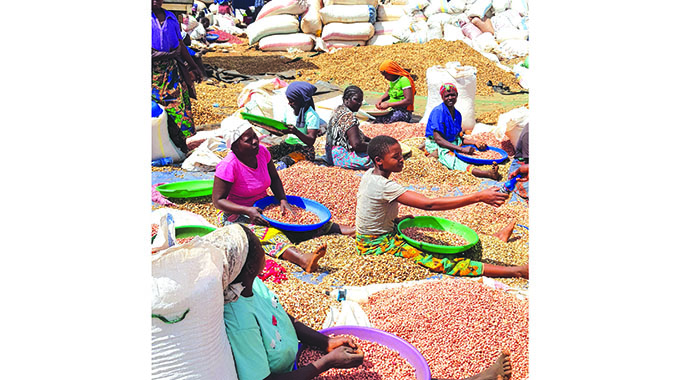Editorial Comment: Malawi trade exhibition a good showcase of reform

The staging of a Zimbabwean trade exhibition in Malawi next week is an important development for both countries as the region and Africa in general move into accelerated economic growth built partly on national expansion but also on the gains that come from increasing trade and freeing trade.
ZimTrade has been planning the process correctly, helping companies that can find new markets in Malawi if they have the right products at the right price, but also stressing what Zimbabwean companies can buy from Malawi. Trade cannot be a one-way process.
There might be still remnants of the “old days”, the decade of the unlamented Federation, where Malawi was seen as an undeveloped country ripe for exploitation. That attitude will not get any Zimbabwean company even on the front door step.
What is required is an appreciation that Malawi has been developing fast, especially in the last quarter century after that country went through its major economic reforms, and has a lot to offer both in markets and in its own products. It is perhaps worth noting that one of Zimbabwe’s older and larger banks reports to a head office in Malawi if you want an indication of how sophisticated that market is becoming.
Zimbabwean exporters are going to have to work for customers. But they start with a number of advantages. They have, presumably, developed products for very similar customers operating in very similar conditions in Zimbabwe, so they have something that is saleable.
Secondly with fairly short production runs they can adapt a product for any special requirements and conditions, working with their customers on such requirements. For this reason, and for others, some exhibitors might need a production person in their sales team as well as the pure sales and finance members. It is easy to forecast a potential customer saying something like “this is a great product but …”.
They might even find a Malawian company that wants a partnership with some local content and assembly and they need to be able to address those issues at the exhibition.
Thirdly they are going to have to offer the greatest after-sales service. Zimbabwe is only round the corner from Malawian customers, so Zimbabwean firms are starting calculations with something close to same-day delivery, or two-day delivery, important when you are looking at urgent orders and even more important when you are discussing after-sales service and things like spare parts, which are generally wanted yesterday.
As always sales require the right product, at the right price and with a first-class back up, pretty much what the best Zimbabwean firms have already developed for their own local markets.
There is, even in this modern age of free trade, a lingering mercantilist background noise, that more trade for one country means someone else loses out and consequently trade is a zero-sum affair. That assumes that markets are not growing, yet all the evidence from freeing trade shows that this process helps to accelerate growth in markets.
So the other half of the ZimTrade programme, to expand Malawian exports to Zimbabwe, is just as important. Already Malawi is a significant supplier of agro-industrial raw materials and could possibly supply more.
One factor to consider in all inter-African trade is the effects of climate change. The switch between stronger El Ninos and stronger la Nina seasons is one where more trade can solve a lot of problems. During an El Nino Southern Africa tends to have drought, while East Africa tends to have higher than average rainfall. During a la Nina that is reversed. Malawi tends to win on both sides.
It does not require much more than really good co-operation at all levels, national and business, to create the partnerships that can at least ensure regional self-sufficiency.
In any case buying products from a near neighbour, rather than from say South America, keeps our money in the region and that means we have customers with money that they might want to spend here, rather than sell to us and buy in their own region.
With all the economic changes across the region in recent years, with Zimbabwe regrettably being a late-comer to reform but now one of its most enthusiastic converts, regional markets have been growing strongly and regional suppliers have been getting better and more prolific.
This opens ever more opportunities for businesses that are aware of what is going on and can work profitably within the growing evening-up of development, as well as the growing development as a whole.
Political leaders can help set conditions and make integrated development faster and better, The trade deal between Malawi and Zimbabwe in 1995, never really exploited by either partner, is one such example and the hard slog of converting all these small agreements and local trade agreements into the new African Free Trade Area is largely a political process.
But politicians cannot take the next step. More trade, more production, more sales is the function of businesses taking advantage of the political openings.
National leadership can help businesses get to the doorknob, but the businesses then have to knock and then have something to sell, and once again we are back to the old fundamental of the right product at the right price with, as we stress, a really good after-sales service and an ability to keep all the promises made by the sales team.










Comments